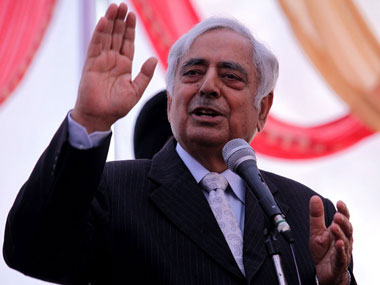Mumbai, Apr 14: Activist and scholar Anand Teltumbde was arrested by the National Investigation Agency (NIA) on Tuesday after he surrendered before it in connection with the Elgar Parishad-Maoist links case.
Teltumbde surrendered at the NIA office at Cumbala Hill in south Mumbai following the Supreme Court's directives.
He was subsequently arrested by the NIA and shall be produced before a court here shortly, an official said.
Earlier, the scholar reached the NIA office in the afternoon along with his wife Rama Teltumbde and brother-in- law and Dalit leader Prakash Ambedkar.
Anand Teltumbde is the grandson-in-law of Dalit icon Dr B R Ambedkar, whose 129th birth anniversary is being observed on Tuesday.
Civil rights activist Gautam Navlakha, a co-accused in the case, also surrendered before the NIA in Delhi. His anticipatory bail plea was also rejected by the apex court.
According to the official, Navlakha will be produced before the court in Mumbai through video conference.
The Supreme Court on March 17 this year rejected the pre-arrest bail pleas of Anand Teltumbde and Gautam Navlakha, and directed them to surrender before the investigating agency.
Teltumbde, Navlakha and nine other civil liberties activists have been booked under the stringent provisions of Unlawful Activities Prevention Act (UAPA) for having alleged Maoist links and conspiring the overthrow the government.
The apex court while rejecting Teltumbde and Navlakha's bail pleas on March 17, directed them to surrender before the prosecuting agency withing a period of three weeks.
The duo later sought extension of the time.
On April 9, the Supreme Court extended the time by one week by way of last chance.
The activists were booked initially by Pune Police following violence that erupted at Koregaon-Bhima there.
According to police, the activists made inflammatory speeches and provocative statements at the Elgar Parishad meet held in Pune on December 31, 2017, which triggered violence the next day.
The police also said these activists were active members of banned Maoist groups.
The case was later transferred to NIA. Teltumbde and Navlakha were given interim protection by the Bombay High Court while their pre-arrest bail pleas were being heard.
After the high court rejected their applications, the duo approached the Supreme Court.
 The direction to this effect was issued during a review meeting chaired by Sayeed here last evening. The army representative assured the Chief Minister that the Army will provide all required support to the government to tackle the imminent threat of floods, an official spokesman said.
The direction to this effect was issued during a review meeting chaired by Sayeed here last evening. The army representative assured the Chief Minister that the Army will provide all required support to the government to tackle the imminent threat of floods, an official spokesman said.




Comments
Add new comment